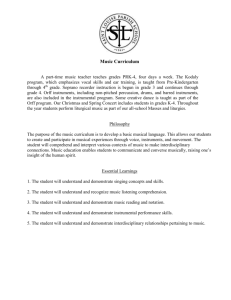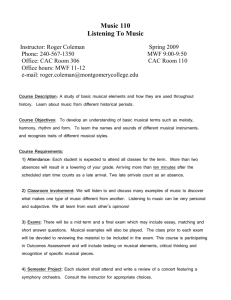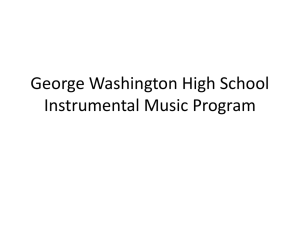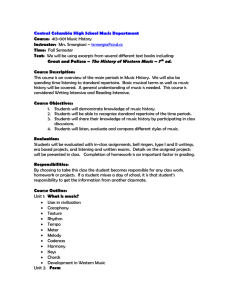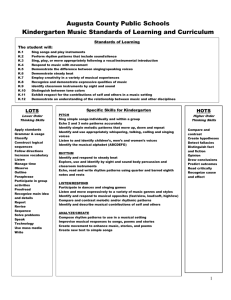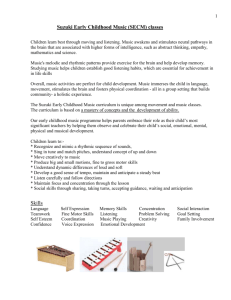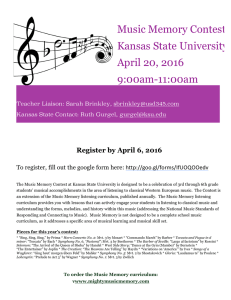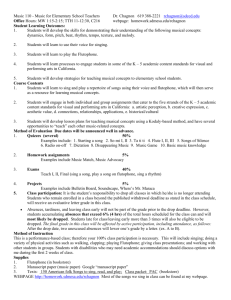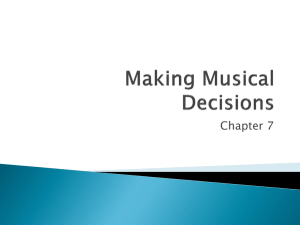Growing in Harmony Brochure
advertisement
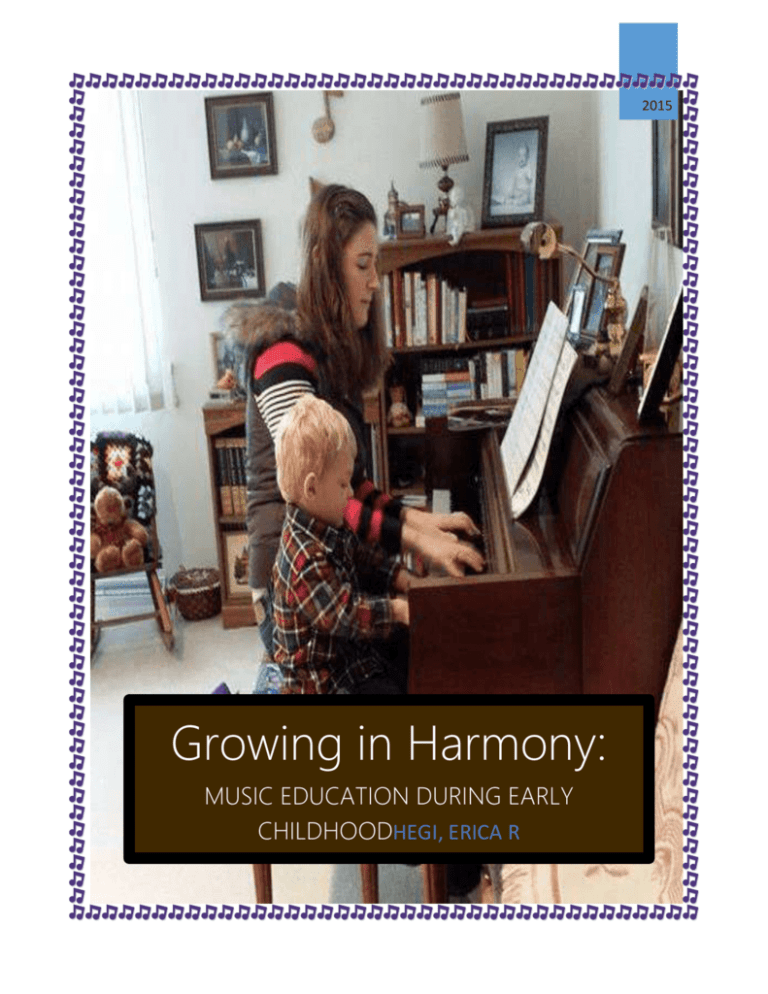
2015 Growing in Harmony: MUSIC EDUCATION DURING EARLY CHILDHOODHEGI, ERICA R Why is Music Education Important During Early From what researchers have studied thus far, music during early childhood helps develop many areas such as: Literacy Music education is a mixture of core subjects such as history, math, science, and reading. Literacy is important in order to become a successful adult and music education helps with different areas of literacy such as visual decoding, vocabulary, articulation, listening, and communication. Memory Using music to teach children a new concept will help children recall the information easier. Using movement and hands-on activities helps the brain process new information. Emotions have a large impact on the formation of memories: “the stronger the emotion connected with the experience, the stronger the memory of that experience” (Jensen, 1998, p. 73). Vocal Development Having children take part in vocal exercises such as singing by themselves, sing call and response, and imitate different objects in their environment (clock, a pet, motorcycle) will help them discover their voices. Brain Development If children begin taking music lessons before the age of seven over time the structure of the brain and the functions of the brain can be altered. Brain regions that are responsible for hearing and self awareness are usually larger in people who have had music lessons for a long period of time. Even the cortex is thicker which is responsible for process of thought and action (Bergland, 2013). Social-Emotional Development Music can help children’s social skills blossom. When children express creative movement, play an instrument, or sing they will become more confident, which may help them make friends easier. In music education children learn how to work together so their communication skills will also benefit. Emotionally, children will learn to connect with lyrics to songs, learn how to express how a certain piece makes tem feel, and can even be calmed down by music when they are fussy. Gross and Fine Motor Skills By encouraging children to express movement while listening to music, playing instruments or musical chairs, and using hand motions to express how the music feels will help their coordination. Childhood According to Research? What Early Childhood Music Programs Are Available in Wisconsin? Kindermusik Prices range from $60-$70 per month Classes for newborns through children 7 years of age Classes include materials for parents to continue music development at home Classes: Village 0-22 months, Our Time: 18 months-3.5 years, Imagine That: 3.5-5 Years, and Young Child: 5-7 years. Sign and Sing, a sign language music class. Music Together $112-$194 for 8-12 week sessions Classes for newborns through children 7 years of age Classes include materials for parents to continue music development at home Classes: Mixed Aged, Big Kids, and Guitar for Grownups Some centers offer discounts if enrolling more than one child or are a returning family. Some even offer scholarships. Musikgarten $144-$203 for 12 week sessions Classes range for ages newborn through 5 years of age Classes include materials for parents to continue music development at home Classes include: Family Music Ages 0-2.5 years, Music Makers 1 At Home in the World Ages 34 years, and Music Makers 2 At Home in the World Ages 4-5 How Can Parents Support and Enrich Their Child’s Musical Development? Be involved in their music experiences from the beginning Parents do not have to be musically gifted in order to enrich their child’s musical development. There are many different ways parents can include music in their home environment such as: Create a musical play zone Create an area in which children are able to explore different instruments and make their own music. One example is to fill a basket with non-pitched percussion instruments such as pots, pans, and wooden spoons. It is important for parents to model to their children how to play the instruments correctly, but it is also important to give them their space to explore creative play. Sing to your children “Mothers and fathers need to know that just as the child who is read to regularly is more likely to become a reader, so too the child who is sung to will more likely become a more developmentally advanced musical child” (Szabo, 1999). During free time offer the option of listening to music Give children the opportunity to listen to a variety of music. Researchers have suggested playing music to help calm infants when fussy. Do movement activities with your children Encourage children to create their own movements while listening to music. Children are able to express their feelings through movement and dance. Parents can also teach their children dances and songs from their culture and from other cultures in the world. Active listening Encourage movement/dance, discussion, art work during music listening activity. Sound exploration Parents and children can explore sound by doing body percussion such as clapping, stomping, or patting a certain patterns and having the other repeat. Ask children to make sounds of noises they may hear in their environment such as a clock, a pet, or a car. There are many different ways to explore sounds with your children so be creative!

